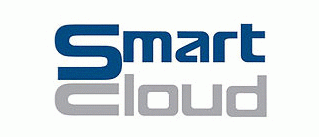What is Situation Management?
Situation Management is a synergistic goal-directed process of situation awareness and control in dynamic systems so that desired goal situations are reached within predefined quality, resources and time.
- Dynamic systems are understood as physical (kinetic), cyber (informational), human (social) systems, or system of systems involving the previous three categories of systems.
- Situation awareness itself is a complex process of truth maintenance of past situations, detection of current situations and prediction of future situations.
- Situation control loop, besides the processes of situation awareness, includes the processes of reasoning about situations, situation action planning, and action execution.
- As a set of parallel processes in situation management, one can include the tasks of situation knowledge acquisitions and learning.
- The conceptual foundation of Situation Management form the concepts of entities, relations, situations, events, actions, goals, behaviors, context, space, time, data, information, knowledge, etc.
Where Cognitive Science meets Computer Science
The CogSIMA conference series provides an annual venue for presenting multi-disciplinary research on complex heterogeneous dynamical systems - of interacting humans, machines, computer agents and/or networks - whose individual and/or collective behavior depends on their situation awareness. Examples of systems include a variety of command and control systems, disaster monitoring and recovery systems, human-robot teams, physical and cyber security situation awareness systems, intelligent transportation systems, health care medical situation control systems, and many other systems. Common to these systems is the need to adequately perceive, reflect, act, and communicate according to the current situation and expected changes - both in the environment and within the systems themselves. The amount and variable quality of information that needs to be processed in order to derive decisions typically poses significant challenges for both human cognitive capabilities and computer processing power.
The CogSIMA conferences are aimed at researchers and practitioners from academia, industry and government, with a wide variety of backgrounds and experience including computer science, human factors, cognitive science, modeling & simulation, robotics, and systems engineering.
Topics of Interest
- Science & Technology
- Theories of situation management, cognitive methods, or decision support in human-machine systems
- Studies of concepts of situation, context, event, goal, intention, action, activity, behavior in the context of hybrid interactive human-machine systems
- Situation perception, comprehension, tracking, prediction and management
- Collaborative decision support
- Approaches to spatial and temporal reasoning, reasoning about goals, intentions and actions, and collective reasoning by teams of human and/or machine agents
- Metrics and evaluation of performance of hybrid human-machine systems
- Mathematics, Modeling, Architectures
- Situation dependent data integration
- Information fusion
- Modeling of situations - model acquisition, construction, adaptation and learning
- Models of human-machine collaboration, hybrid and distributed cognition
- Computer architectures
- System architectures
- Applications & Emerging Technologies
- Systems, platforms and tools for situation awareness and decision support
- System level experiments
- Application specific basic and applied research





